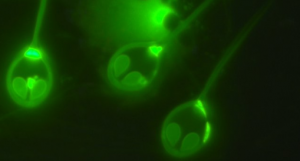Some truths about the Universe and our experience in it seem immutable. The sky is up. Gravity sucks. Nothing can travel faster than light. Multicellular life needs oxygen to live. Except we might need to rethink that last one.
Scientists have just discovered that a jellyfish-like parasite doesn’t have a mitochondrial genome – the first multicellular organism known to have this absence. That means it doesn’t breathe; in fact, it lives its life completely free of oxygen dependency.
This discovery isn’t just changing our understanding of how life can work here on Earth – it could also have implications for the search for extraterrestrial life.
Life started to develop the ability to metabolize oxygen – that is, respirate – sometime over 1.45 billion years ago. A larger archaeon engulfed a smaller bacterium, and somehow the bacterium’s new home was beneficial to both parties, and the two stayed together.
Read more: science alert
Ask me anything
Explore related questions





